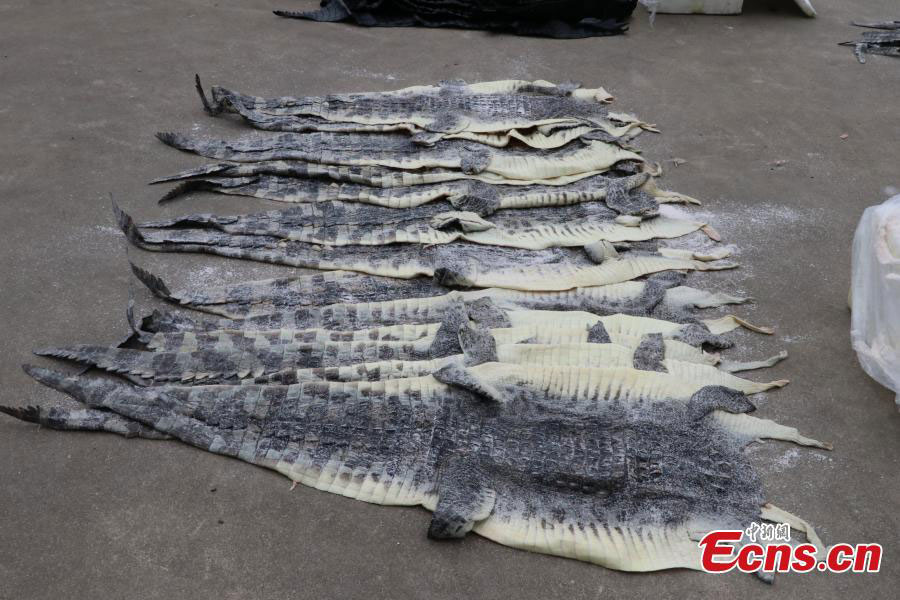Over 1,600 crocodile skins seized in S. China
|
Crocodile skins seized by coast guards are on show in Fangchenggang City, South China’s Guangxi Zhuang Autonomous Region, Feb. 7, 2017. [Photo: China News Service/ Wang Lidan] |
More than 1,600 pieces of crocodile skins and 500 kilograms of what appears to be crocodile meat were seized in south China’s Guangxi Zhuang Autonomous Region, coast guards said Thursday.
During a patrol Tuesday, a group of coast guards boarded a boat around 3 a.m., which was carrying a number of large polystyrene boxes. Upon inspection, the boxes contained what appeared to be 1,609 crocodile skins, each around 1.4 meters long, and 506 kilograms of crocodile meat.
The boat and its owner have been detained. A suspect caught said he was hired by a buyer in the city to receive the goods from a port in Vietnam.
Crocodiles are under state protection in China and are also classed as endangered by the Convention on International Trade in Endangered Species of Wild Fauna and Flora. Crocodile skin is the upmarket of consumer goods because of its small quantities and luxurious quality. The smuggling of alligator skins is emerging as the high-end leather market flourishes.
Crocodile skins are often used for luxury handbags.
The investigation continues.
